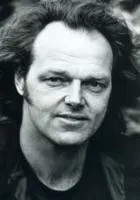New Zealand actors face possible Australian alliance
Written by

Courtesy of TV One Breakfast 20-09-05 Presenter (Paul Henry): The New Zealand acting community is currently a group divided over the issue of who should represent them and whether they need representation at all.
Courtesy of TV One Breakfast 20-09-05 Presenter (Paul Henry): The New Zealand acting community is currently a group divided over the issue of who should represent them and whether they need representation at all.
Co-Presenter (Kaye Gregory): The union for Australian actors has proposed our own union, that's Actors Equity, becomes a chapter of their alliance, but that also has ignited debate over whether actors should join Australia or go it alone.
Presenter: Well Kiwi actors and other showbiz players are meeting in Wellington tonight to resolve the issue and other ways to improve conditions in the industry. Bruce Hopkins of Actors Equity joins me now. I was going to mix those two words up Actors and Equity. How are you Bruce?
Bruce Hopkins (Actors Equity): Aquamarine.
Presenter: Yes.
Hopkins: I'm well thank you.
Presenter: How bad are conditions for actors in New Zealand?
Hopkins: Conditions are pretty bad. We're acknowledged by all the sister unions or, you know, whatever the phrase is for fellow unions around the world, that we have the worst standard of conditions in the English-speaking world.
Presenter: In terms of what?
Hopkins: Conditions of contract. We're one of the very few nations now that actors can't get residuals so for example I played a role in Lord of the Rings, Lord of the Rings becomes a huge success, there are two action figures out there of my character, now I'm on all the board games, used in one of the video games but you don't get residuals, on screen DVD stuff like that, other countries you're in residual.
Presenter: Alright, so say for instance Lord of the Rings had been filmed in Australia, you were an Australian actor, how much more would you have got?
Hopkins: I probably wouldn't have got more up front, my daily rate of pay would've been very similar, but the back end, when something becomes successful...
Presenter: When your little action figure sells.
Hopkins: Yes, yes.
Presenter: You would've got a percentage of that?
Hopkins: Trickle down, trickle-down effect happens. I'm actually on a small percentage where I'm just trying to clear that up now but we've had to really pursue that to try and make that happen.
Presenter: There's a flip side to this as well though, isn't there, that perhaps there is work that you get, that New Zealand gets because people can effectively get actors at a cheaper rate.
Hopkins: Yeah that was something, that really irritates me that one. That was brought up at a recent meeting and it was like so . . . the countries where we're getting told this is where the work will go, South Africa, Argentina and Romania. So do we have to compete against (those countries), oh so you're telling us to compete against the low end not the top end, so what sort of message is that, you know, for the industry?
Presenter: Well is there anything to indicate that there would be less work if union conditions here were tighter?
Hopkins: No there's not real hard concrete evidence that is mooted because Australia - if we had the same conditions Australia's got - the studios, they've got 12,000 or 20,000 actors who have registered as actors to call on for auditions etc, etc. But we have CER (Closer Economic Relations), we work between the two countries now. I don't think it's going to make a big difference.
Presenter: One of the interesting things you point out is you might be working on a major motion picture and the crew are working on it for maybe six months, the actor, perhaps even taking a leading role, is maybe only working on it for a couple of weeks and they're getting only a couple of weeks pay.
Hopkins: Yes, yes that's it, there's no (compensation), you know, as we have ACC, I pay my own ACC here, when I'm employed. We'd have to restructure legislation, you know, this doesn't change overnight if it happens.
Presenter: Sure. What is likely to happen? The Australians have basically approached the New Zealand union and said, do you want to become a chapter of our union?
Hopkins: Well there's the first thing for a start, they didn't approach us. The CTU, we're part of the NDU, the Northern Distribution Union, CTU got approached by the NDU saying look Equity shouldn't be with us we don't know anything about the business, this is after years, who else wants to look after them? No one in New Zealand in the trade unions wanted to look after Equity so CTU went to Australia and MEAA the Media Entertainment Arts Alliance over there put their hand up and said we'll give them a hand.
Presenter: Bruce, it will be very interesting following this. Bruce Hopkins thank you for joining us.
Hopkins: Cool, thank you.
Presenter: From Actors Equity.
ENDS